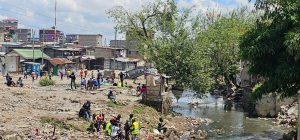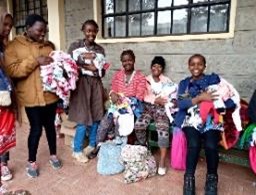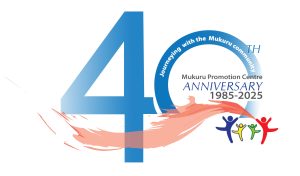The Social and Health Services works with the Mukuru community to enable them to access education, health, welfare and social rehabilitation.
The social workers themselves are the enablers of the Social and Health Services programs. They raise awareness of the rights of children and the responsibilities of parents per the government regulations. Through regular home visits, they discover the different levels of poverty and its impact on the families. They follow up on basic necessities to improve the quality of life for the Mukuru residents, especially after fires and floods. The social workers perform a critical link between the community and MPC.
From 1993 it was established that each MPC school and department has a Social Office whose main task is to oversee the healthy status of families so that the very poor children can attend school, the families have enough food to meet their needs, and the vulnerable have a listening ear. Urgent action is always required in the slums as a result of floods and fires. In any one disaster hundreds of families lose everything in their corrugated iron shelters. Items like food, clothing and bedding materials become immediate needs.
During the terms to further support families the Social Office schedules motivational talks, parent meetings, activities, and counselling sessions. The Social Office has become a safe place for the most traumatized clients to come and receive psycho-social support. In 2018 MPC created the new Child Protection and Safeguarding Office under the Social and Health Services Department. Developing the social services offices helped create a more stable and empowered community, ultimately improving the quality of life for the residents of Mukuru.
Together with volunteers, interns and counsellors the Social Office are able to undertake the following activities:
- Attending to incoming clients.
- Nutritional support and food supplements for the malnourished babies and clients facing food insecurity.
- Case identification, case management, need assessment and interventions.
- Guidance and counselling.
- Creative awareness through motivational talks and career guidance.
- Class 8 Sponsorship Interviews
- Home visit assessments for the most vulnerable children.
- Medical care support, visitations, taking the clients to referrals and other hospital appointments.
- Follow-ups on youth & children living with disabilities under the ‘Employ-Able’ program.
- Networking with other organizations.
- Profiling for the secondary and skills students’ eligibility for sponsorship assistance.
- Distributing aid to disaster affected clients e.g fire outbreaks, floods and demolitions.


